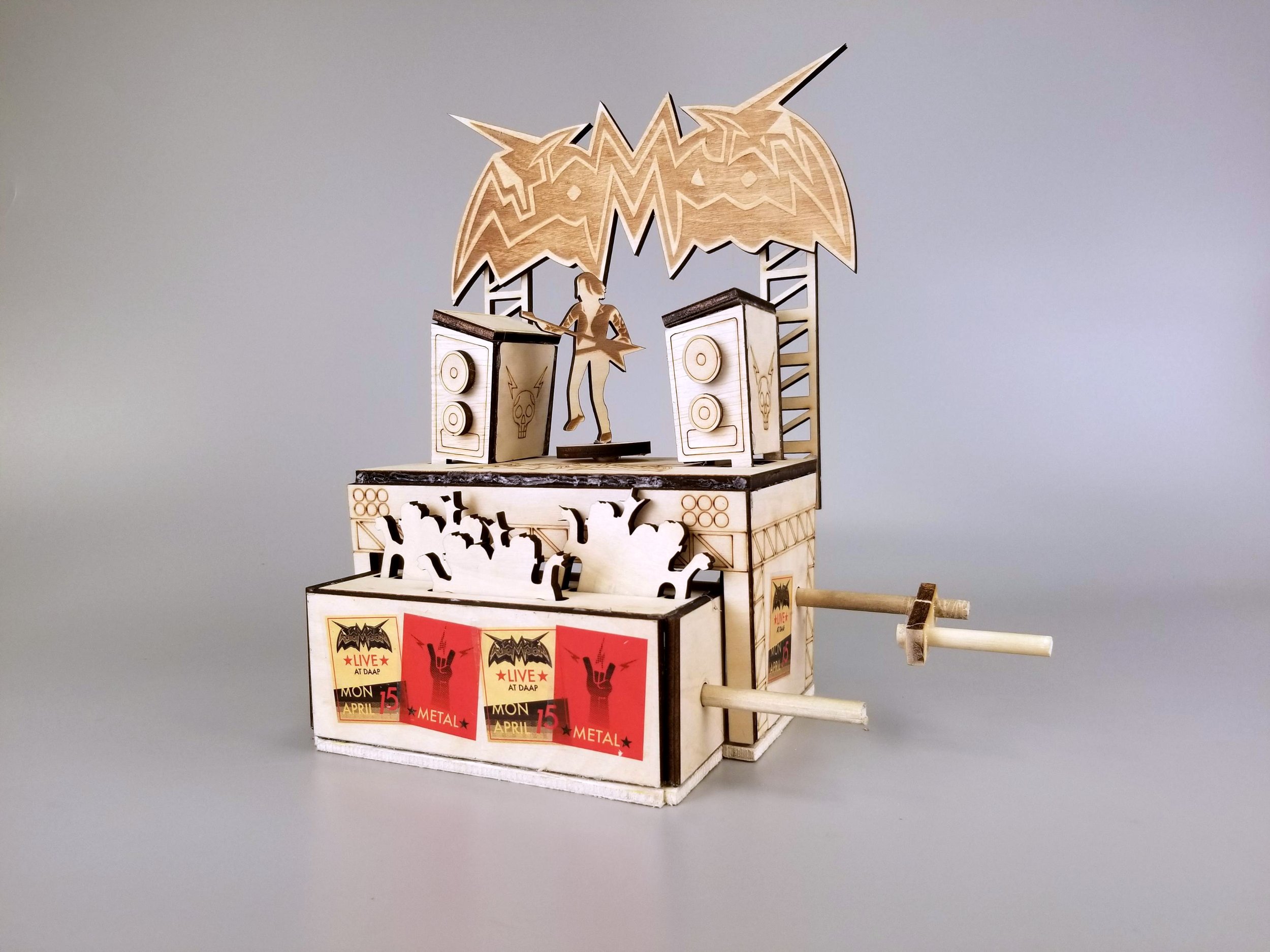
A musical composition told in three ‘movements’.
Stories are an integral part of the design process, as they inform the thoughts and feelings that our end products will evoke. The challenge, then, is to design a mechanism that, when activated, tells a simple story through motion alone. Much like a band, all facets of the design, from the mechanics to the art, had to work together seamlessly to convincingly weave this narrative into life.

Target demographic
Likes toys that can be physically manipulated
Is interested in things that are loud or action oriented.
cannot easily work complex mechanisms
Easily distracted or bored
Blue sky thinking
Several sets of sketches were made exploring different thematic concepts and the stories that could be told through them.
Very little consideration was given yet to how these mechanisms would realistically work, just how they would feel.
Out of all these designs, the rowdy rock concert had the most potential.
Identifying the motions
To bring this story to life, three motions were established, including:
The back and forth movement of the performer
The vibrating of the stage speakers.
The bobbing of the crowd
Mechanical ideations
Based on research of existing mechanisms, such as cams and switches, sketches were made exploring solutions for the motions that I needed to produce. Though many of these initial ideas failed, cycles of prototyping and testing brought the ideas closer and closer to realization.
Some initial ideas included:
Mechanism to make performer dance
Mechanisms to animate beats of a speaker
Mechanisms to move crowd in wave-like manner
Cycle of iteration
While designing the mechanisms, it was crucial to test ideas often with functional prototypes. Preliminary models were quickly created from cardboard, which let me see fast if a design was viable. If it showed promise, the mechanism was then laser-cut out of cheap plywood to see how well it translated to the heavier material. Small adjustments to these models were made in the wood shop to test more minor changes. All of this would then go on to inform my next take on the design.
Emotional identity
The design cues of the 80s rock movement were channeled to create a unified art-style that was both unique and thematically resonant with the overall story. As a result, the overall design of art and props became very angular and stylized.
Final art and layout
Once the mechanisms were fully functional, an art pass was done over all of the parts, guided by my established visual style. This consisted of line art that would be cut and etched by a laser cutter. Mock posters were also made to be used as decals in order to give more personality and life to the primarily wood base.
Poster Designs (to be applied as stickers)

Construction
Once all was finalized, the design was sent over to the RPC to be laser cut for the last time. The pieces were wiped down with a wet rag to remove residue and then assembled with super glue and a few small nails.
Lastly, the poster decals were placed along the sides of the project as a finishing touch.
Final prototype
At last, the Automatons were ready for their first live show.





























